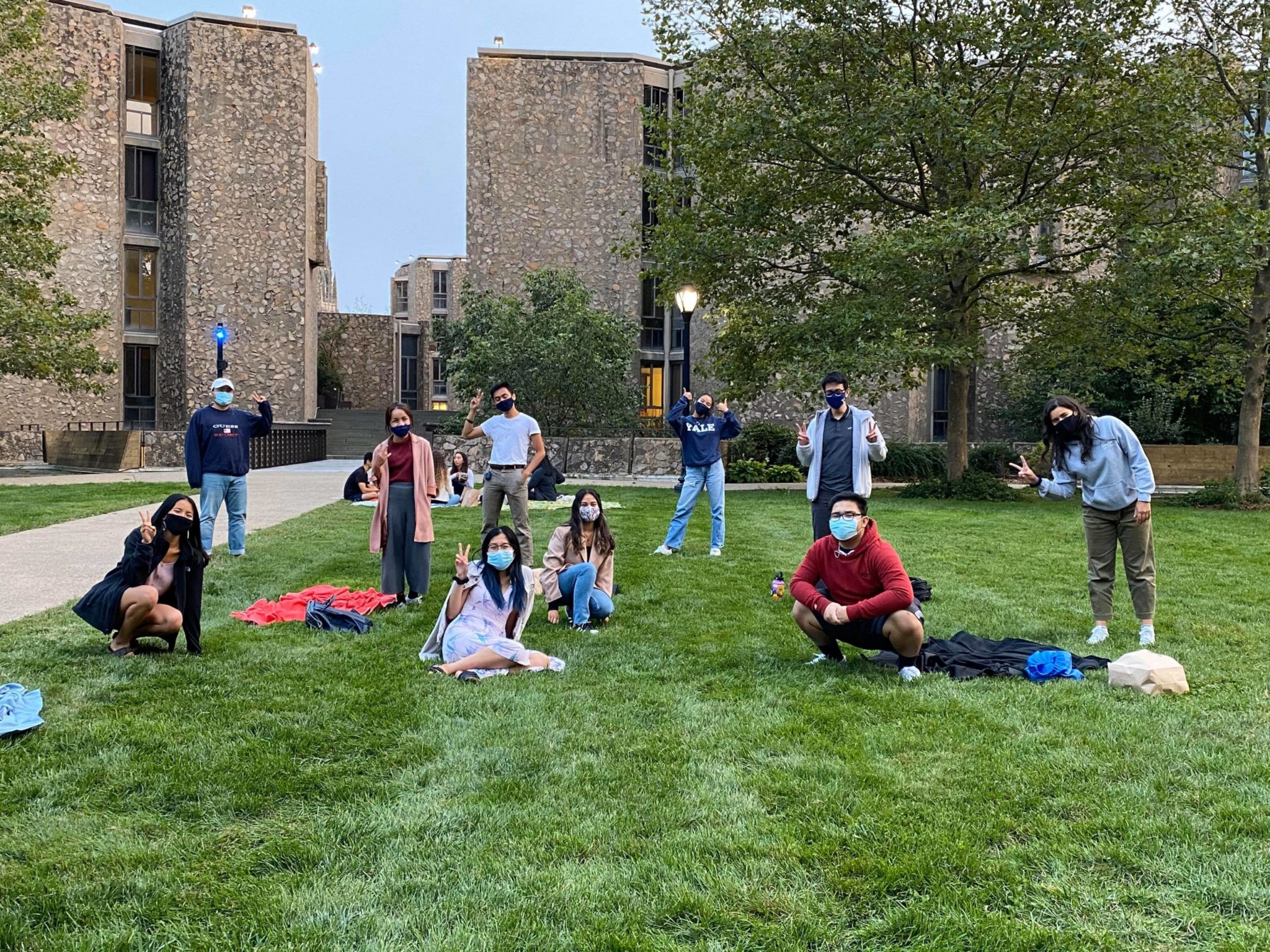
Courtesy of KASAMA
The political turmoil that warps the Philippine archipelago and the United States has Filipinx Americans channeling activism that has emboldened their ancestors for decades.
Led by the Kasama Club — “kasama” means “together” in Tagalog — the Filipinx American community at Yale celebrates Filipinx American History Month this October. The Filipino American National Historical Society chose this year’s theme as the History of Filipino American Activism. The theme aims to highlight Filipinx Americans’ participation in social justice movements in the past decades and their solidarity with other communities in the fight for equity and justice.
This year, FANHS also chose to honor a fight that was not as widely broadcasted on television screens as demonstrations: the fight of Filipinx American nurses to save lives during the pandemic. Members of the FANHS believe that this theme is central to the tumultuous nature of a year living amid an election, a pandemic and a mass movement towards racial justice. The society hopes this theme spurs a sense of civic responsibility throughout the Filipinx American community. On Oct. 29, at the end of the month, the club will host a Zoom event titled “Intersectional Activism: Ruby Ibarra in Conversation and Concert.”
“Celebrating and learning more about Filipinx American history allows me to further explore my Filipina identity and to reflect upon and honor the labors and struggles of past and current Filipinx Americans in movements for social justice,” Kasama Social Chair Pia Gorme ’23 wrote to the News.
The Philippines’ colonial relationship with the United States initiated mass migrations from the Philippines to the U.S. in the 1900s. Demand for labor on Hawaiian plantations and California farmlands, scholarship programs and domestic services were the most prominent causes for Filipinx migration in the early 20th century. In the latter half of the century, Filipinx military officers who served in the U.S. armed forces and health care professionals were the dominant categories of immigrants. Throughout their history, Filipinx Americans have often faced racial discrimination through anti-miscegenation laws — laws that banned interracial marriage — and were denigrated to low-paying jobs. Filipinx Americans are currently the second largest Asian American group in the country.
As a celebration of the plight of Filipinx Americans in the country, FANHS first introduced October as Filipinx American History Month in 1992. The U.S. Congress officially recognized the designation in 2009.
The Kasama Club began this year’s Filipinx American History month by showing a Zoom screening of “A Thousand Cuts,” a documentary about Maria Ressa, the editor in chief of “Rappler,” a Phillipine online news website that has faced libel lawsuits from the current administration in the Philippines. The club also launched a “Kapatid,” or siblings program, “for all Filipinx Yale students.
“[The kapatid program] is not explicitly Filipinx American History themed but just as camaraderie and community have been vital in Filipinx American History, we believed it was the perfect month to start and encourage such bonds between Filipinxs/Filipinx Americans in Yale,” President Anna Aller ’22 said.
Social media has also been an avenue for the club to promote this year’s theme by highlighting prominent Filipinx American activists. This will culminate in the “Intersectional Activism: Ruby Ibarra in Conversation and Concert” event on Oct. 29 hosted through Zoom.
Aller spoke favorably about the event’s guest, who raps about the Filipinx American identity in English, Tagalog and Waray — a local dialect in the Philippines. She has also been a vocal activist for the Black Lives Matter movement and against the current Philippine government while working as a COVID-19 research scientist.
Kasama Club Treasurer Willa Ferrer ’24 said that Filipinx American History Month carries a personal importance because it presents an opportunity to reflect on what her Filipinx American identity means to her.
“To me personally, celebrating FAHM and reflecting on the amazing Filipinxs, both past and present, makes me proud to be a Filipina,” Ferrer said.
Ferrer and Kasama Cultural Chair Kayley Estoesta ’21 came to Yale with unclear perceptions of what the joint identity means to them.
But they attested to how Yale’s Filipinx and ethnic studies communities allow them to settle into these identities.
“Friends and peers shared documentaries and books and names of activists with me that put my individual experiences throughout my life as a Pinay into a larger historical context, and further inspired my passion for social justice,” Estoesta said. “Now, as a senior, it’s about sharing this knowledge with younger [Filipinx] students and continuing to learn and grow with each other as a community.”
The month has also been a time for Yale students to reflect on the existing Filipinx community at Yale. According to Aller, the Filipinx experience at Yale is molded by each individual. She said while others choose to become very involved in the Kasama Club, others do not center their Yale experience around Filipinx community.
Still, Aller hopes that the Kasama community becomes a space for the community to feel welcome, emphasizing that one’s involvement in the Kasama and Filipinx community at Yale does not define the “magnitude” of one’s Filipinx or Filipinx American identity.
The Filipino American National Historical Society was founded in 1982 and has 38 chapters around the country.
Razel Suansing | razel.suansing@yale.edu







